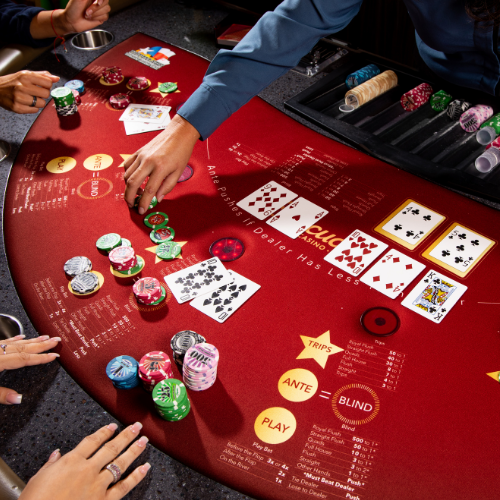
Poker is a popular card game with players from around the world. It has a rich history, with roots dating back to the sixteenth century in Europe. It is played in a variety of settings, from private homes to casinos and online. The game has many different forms and rules, but it is generally played by betting. There are three main types of bets that a player can make in any poker deal: call, raise, or fold.
A good poker player knows when to play strong hands and when to fold weak ones. It’s important to learn how to identify and avoid the types of hand that are most likely to run bad, so you don’t get caught in a losing streak.
It’s also helpful to know when it’s time to mix up your strategy. Don’t always continuation-bet on a flop with your big hand, and check-raise a flopped flush draw half the time, and call the other half.
Being able to mix it up is an important skill for any poker player, as it will help you keep your opponents on their toes and prevent them from making obvious mistakes. If you don’t make it difficult for people to guess what you have, your bluffs will be less effective and you’ll lose more money.
You’ll also learn how to read body language better in poker, so you can use your intuition to figure out whether someone is playing a bluff or not. This can translate into your personal and professional life, as it will improve your ability to read other people’s emotions and understand what they’re saying.
Another critical skill for a poker player is the ability to calculate probabilities. This includes determining the probability that a certain card is still available at the table, which can be useful when making decisions on the fly.
It’s also important to be able to estimate the odds of winning, which can help you decide when it’s worth putting more money in and when it’s best to fold. This skill can also help you in business, where you may need to evaluate a potential investment or a project before committing to it.
This skill can be used in a variety of situations, from sales to leadership to team building. It helps you make informed and confident decisions based on facts and figures instead of emotion and instinct.
The ability to be confident in your own judgment is a valuable trait for any business owner or professional. This is especially true when making decisions in high-pressure situations where it’s not easy to find the missing pieces of information that others might rely on.
Being able to handle losing is also an important skill for poker players, as it can help you to see failure as an opportunity to improve. This perspective will encourage you to work harder in the future and learn from your past mistakes.
The ability to be a good poker player is an invaluable skill for any business professional, as it can boost your confidence and ensure that you’re prepared for the toughest challenges. It also helps you to develop a healthy relationship with failure that can be applied in other areas of your life.